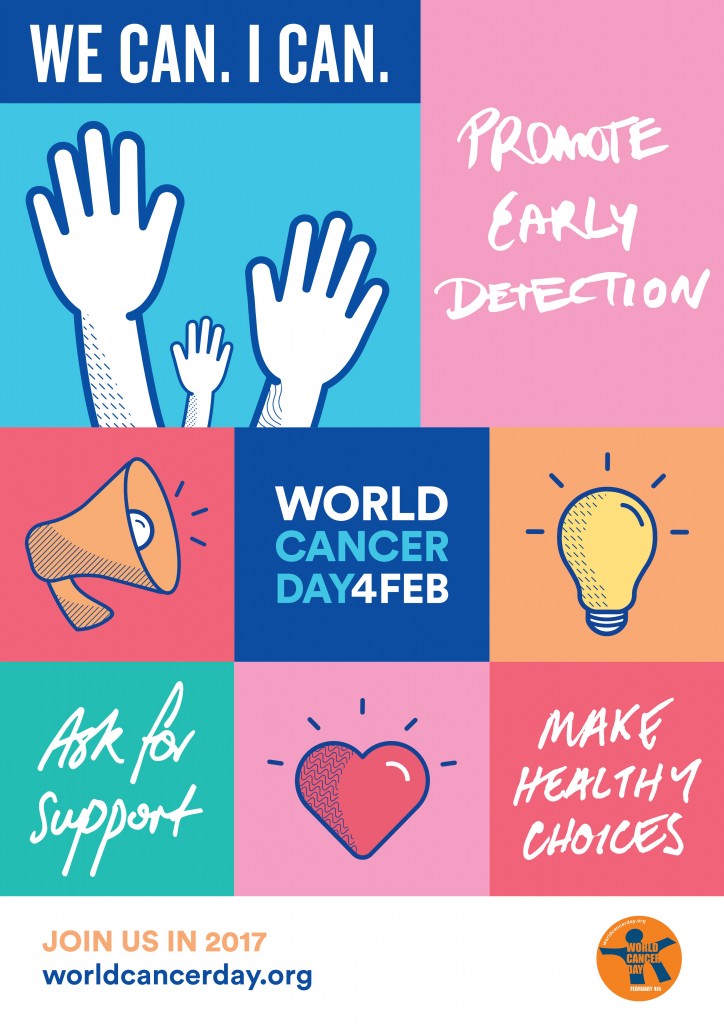
Sadly, the incidence of deaths from cancer each year is very high – at 8.2 million people. The aim of World Cancer Day (February 4) is to unite the world in the fight against cancer, in order to prevent millions of deaths each year.
What is cancer?
Cancer is an abnormal cell growth. Normally our body’s cells grow, divide and die. In a cancer this doesn’t happen in the usual way. This can form a lump called a tumour, or cause the blood of lymph fluid in the body to become abnormal.
Are there different kinds of tumours?
Yes there are. You may have heard of the term malignant and benign. A benign tumour is where the cells are confined in one location and are unable to spread throughout the body – this type of cell is not cancerous. The other type, malignant, is cancerous, as the cells are able to spread by travelling through the blood or lymph system.
How does cancer spread?
A localized cancer is one that hasn’t spread. The first spot that a cancer grows in is called the primary cancer. If cancer cells form at another site this is called a secondary cancer or a metastasis.
What kind of cancers can be screened for?
Screening is a process of working out someone’s risk of developing a particular disease. The benefit of screening, is that it can detect cancers at a very early stage. Screening looks at signs of cancer before it has developed or symptoms have started.
At a particular age, every at risk person should be screened for breast cancer, cervical cancer and bowel cancer as part of the Australian screening program.
- Breast cancer screening is offered for women aged 50-74
- Bowel cancer screening is also for people aged 50-74 and the test can be completed in the privacy of your home
- Cervical screening, in the form of pap testing, is used to detect cervical cancer. All women between the age of 18 and 69 who have ever been sexually active should have regular pap tests.
In addition, people at high risk of certain cancers, such as lung cancer, can receive screening for these.
How can I reduce my cancer risk?
The major things you can do to reduce your risk of cancer are to:
- Maintain a healthy body weight
- Eat well and have an active lifestyle
- Limit alcohol
- Protect your skin from the sun and other forms of UV (such as tanning beds)
- Be a non-smoker and avoid second hand smoke
What do I do if I am worried about cancer, or would like to be screened for cancer?
If you are concerned about having cancer, speak to someone, such as a GP, as soon as possible. Additionally, if you would like to be screened, you can book in with a GP who can arrange any necessary tests for you, and talk to you about any concerns you may have.
Click here to book an appointment with a GP to discuss cancer and/or screening –>
